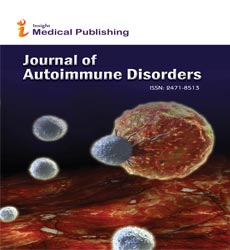Abstract
Implications of Epigenetics in Myasthenia Gravis
Myasthenia gravis is an autoimmune disease characterized by muscle weakness. The concordance rate of monozygotic twins in myasthenia gravis is about 30-40%, significantly higher than that in dizygotic twins, indicating genetic factors play a role in the pathogenesis of the autoimmune disorder. On the other hand, the concordance rate of the monozygotic twin is far below 100%, supporting the notion that environmental factors also play a role in the progression of the disorder. It is widely believed that environmental factors will influence the disease progression by altering gene expression. A long standing question is how the environment alters gene expression in humans. This review summarizes our current understanding of known mechanisms by which environmental factors such as medications, pollutants, food, sunlight, bacteria and viruses alter gene expression in some common autoimmune disorders. In this review, we also provide some literature evidence that supports epigenetics is a link between environment and abnormal gene expression in myasthenia gravis.
Author(s):
Sujin Bao, Julie Rajotte-Caron, Danil Hammoudi and Jing Lin
Abstract | Full-Text | PDF
Share this

Google scholar citation report
Citations : 155
Journal of Autoimmune Disorders received 155 citations as per google scholar report
Abstracted/Indexed in
- Google Scholar
- Open J Gate
- China National Knowledge Infrastructure (CNKI)
- Directory of Research Journal Indexing (DRJI)
- WorldCat
- Geneva Foundation for Medical Education and Research
- Secret Search Engine Labs
Open Access Journals
- Aquaculture & Veterinary Science
- Chemistry & Chemical Sciences
- Clinical Sciences
- Engineering
- General Science
- Genetics & Molecular Biology
- Health Care & Nursing
- Immunology & Microbiology
- Materials Science
- Mathematics & Physics
- Medical Sciences
- Neurology & Psychiatry
- Oncology & Cancer Science
- Pharmaceutical Sciences


